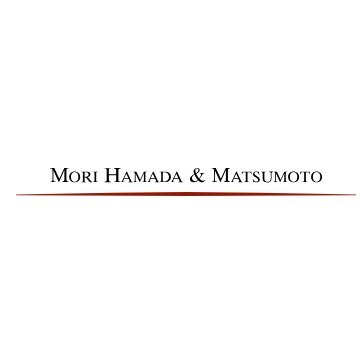Best Securities Lawyers in Chiyoda-ku
Share your needs with us, get contacted by law firms.
Free. Takes 2 min.
List of the best lawyers in Chiyoda-ku, Japan
About Securities Law in Chiyoda-ku, Japan
Securities law in Chiyoda-ku, Japan, is largely dictated by national legislation since financial regulation is generally governed at the national level in Japan. The main legal framework is centered around the Financial Instruments and Exchange Act (FIEA), which sets the standards for securities registration, disclosure, trading, and brokers or dealers' conduct. Being the economic hub, Chiyoda-ku, home to the Tokyo Stock Exchange and many financial institutions, is heavily influenced by these regulations. The district adheres to these national laws, with local authorities enforcing them to ensure fair and transparent financial dealings.
Why You May Need a Lawyer
Legal advice is often crucial in navigating the complexities of securities law. Common situations where a lawyer's expertise may be needed include but are not limited to launching a new financial product, compliance issues for brokers and investment advisors, insider trading allegations, securities fraud investigations, and assistance with public offerings. A lawyer with experience in securities law can guide you through regulatory compliance, represent you in court, and provide advice on transactions to mitigate risks associated with securities dealings.
Local Laws Overview
Though national laws primarily govern the securities industry in Japan, there are local regulatory aspects overseen by bodies such as the Tokyo Metropolitan Government. These may involve local taxation and reporting requirements that complement national securities laws. For instance, the FIEA requires detailed disclosures for security issuances and transactions, and implements strict penalties for insider trading and market manipulation, which are enforced at all levels. Additional regulations may also be found in the Companies Act, which covers the legal framework for business operations, including those of corporations issuing securities.
Frequently Asked Questions
1. What is the main regulatory body overseeing the securities market in Japan?
The Financial Services Agency (FSA) is the main regulatory body responsible for overseeing the securities market in Japan.
2. Do I need to register my securities in Japan?
Yes, securities typically need to be registered with the relevant authorities in Japan, subject to certain exemptions outlined in the FIEA.
3. What are the penalties for insider trading in Japan?
Penalties for insider trading can include significant fines and imprisonment, depending on the severity of the offence as determined by the FIEA.
4. Are there specific disclosure requirements for public companies in Japan?
Yes, public companies must comply with extensive disclosure requirements contained within the FIEA, including periodic reporting of their financial condition, business results, and material corporate events.
5. Can foreign entities offer securities in Chiyoda-ku, Japan?
Foreign entities can offer securities in Japan, but they must comply with Japanese securities law, including registration and disclosure requirements.
6. What legal support can I get when facing securities litigation in Japan?
You can engage a securities lawyer or law firm specialized in litigation to defend your interests in court proceedings related to securities laws.
7. How do I comply with the Anti-Money Laundering regulations in securities transactions?
Compliance involves implementing rigorous Know Your Customer (KYC) processes, reporting suspicious transactions, and adhering to guidelines set by the FSA.
8. What should I do if accused of violating securities law?
If you are accused of violating securities laws, it is crucial to contact a lawyer immediately to represent you and guide you through the legal proceedings while ensuring your rights are protected.
9. Are there rules governing mergers and acquisitions in Chiyoda-ku, Japan?
Yes, mergers and acquisitions are regulated under the FIEA and the Companies Act. These rules govern procedure, disclosure requirements, and protections for minority shareholders.
10. Do regulations differ for different types of securities like stocks, bonds, and derivatives?
While the foundational regulatory principles apply broadly, there are specific provisions and rules that apply differently to stocks, bonds, derivatives, and other financial instruments.
Additional Resources
For those seeking further information on securities law in Chiyoda-ku, Japan, the Financial Services Agency (FSA) website is an invaluable resource. The Tokyo Stock Exchange also provides guidelines and resources for listed companies and investors. Additionally, the Japan Exchange Group offers information on market data, rules, and regulations that can be helpful in understanding the operational framework of securities markets in Japan.
Next Steps
If you are in need of legal assistance related to securities in Chiyoda-ku, Japan, the first step is to consult with a securities lawyer or law firm that specializes in Japanese financial law. They can provide tailored advice and representation. Ensure that the professional you choose has a strong understanding of both the national laws and any local Chiyoda-ku ordinances that may impact your situation. Organize all relevant documentation and be prepared to discuss your concerns in detail with your legal counsel to address the issues effectively.
Lawzana helps you find the best lawyers and law firms in Chiyoda-ku through a curated and pre-screened list of qualified legal professionals. Our platform offers rankings and detailed profiles of attorneys and law firms, allowing you to compare based on practice areas, including Securities, experience, and client feedback.
Each profile includes a description of the firm's areas of practice, client reviews, team members and partners, year of establishment, spoken languages, office locations, contact information, social media presence, and any published articles or resources. Most firms on our platform speak English and are experienced in both local and international legal matters.
Get a quote from top-rated law firms in Chiyoda-ku, Japan — quickly, securely, and without unnecessary hassle.
Disclaimer:
The information provided on this page is for general informational purposes only and does not constitute legal advice. While we strive to ensure the accuracy and relevance of the content, legal information may change over time, and interpretations of the law can vary. You should always consult with a qualified legal professional for advice specific to your situation.
We disclaim all liability for actions taken or not taken based on the content of this page. If you believe any information is incorrect or outdated, please contact us, and we will review and update it where appropriate.














